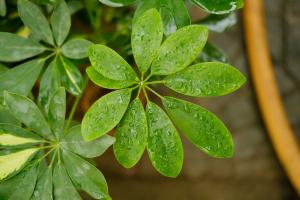How to Fertilize Potted Vegetable Plants
Growing your own vegetables can be a satisfying and rewarding experience, especially if you don't have a large outdoor space. Potted vegetable plants are a great alternative for urban gardeners or for those who want to grow vegetables on their balconies or patios. However, in order to ensure healthy and bountiful yields, it is important to fertilize your potted vegetable plants properly.
Choose the Right Fertilizer
Before you start fertilizing your potted vegetable plants, it is important to choose the right fertilizer. Vegetables require certain nutrients in order to grow healthy and strong, so it is important to make sure that your fertilizer contains these essential nutrients. Look for fertilizers that are high in nitrogen, phosphorus, and potassium. You can also choose organic fertilizers that are made from natural ingredients like compost, bone meal, and fish meal.
Choose the Right Time to Fertilize
It is important to fertilize your potted vegetable plants at the right time in order to ensure the best results. Generally, you should fertilize your plants once every two to three weeks during the growing season, which usually runs from spring to fall. Make sure to fertilize your plants after they have been watered, not before, as this can cause the fertilizer to burn the roots of your plants.
Apply Fertilizer Properly
When you are ready to fertilize your potted vegetable plants, it is important to apply the fertilizer properly. You can either sprinkle the fertilizer on top of the soil or mix it in with the soil before you plant your vegetables. If you are using a liquid fertilizer, you can dilute it with water and use a watering can to apply it to your plants. Be careful not to over-fertilize your plants, as this can be harmful to them. Follow the instructions on the fertilizer package carefully.
Use Fertilizer in Combination with Other Garden Practices
In order to ensure healthy and strong plants, it is important to use fertilizer in combination with other garden practices. Water your plants regularly and make sure they are getting enough sunlight. Prune your plants regularly to encourage new growth and prevent diseases. Keep an eye out for pests and insects, and take steps to control them if they become a problem. By using fertilizer in combination with these other practices, you can ensure that your potted vegetable plants will thrive.
In Conclusion
Fertilizing your potted vegetable plants is an important part of growing healthy and bountiful crops. By choosing the right fertilizer, fertilizing at the right time, and applying the fertilizer properly, you can ensure that your plants get the essential nutrients they need. Remember to use fertilizer in combination with other garden practices to ensure the health and well-being of your plants.

 how many times do yo...
how many times do yo... how many planted tre...
how many planted tre... how many pine trees ...
how many pine trees ... how many pecan trees...
how many pecan trees... how many plants comp...
how many plants comp... how many plants can ...
how many plants can ... how many plants and ...
how many plants and ... how many pepper plan...
how many pepper plan...




























